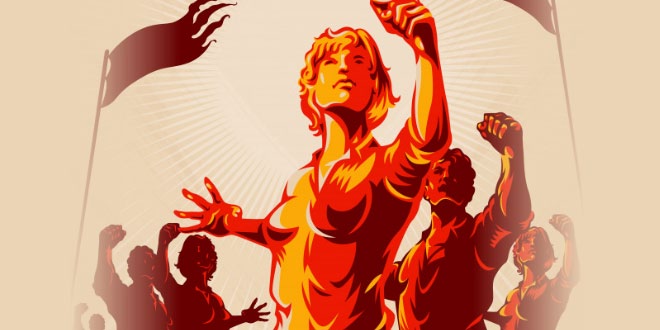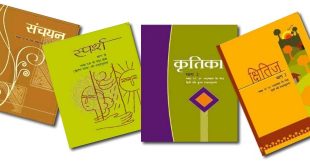NCERT 10th Class (CBSE) Social Science: Power Sharing Quiz
25 Multiple Choice Questions related to NCERT 10th Class (CBSE) Social Science: Power sharing Quiz:
Quiz: Power sharing
Power sharing among the different organs of government (Horizontal power sharing). In a democracy, power is shared among the different organs of the government such as the legislature, executive and the judiciary. This is called the horizontal distribution of power because it allows different organs of the government placed at the same level to exercise different powers.
- Question 1 of 25
1.
Power sharing is desirable because it helps: _________
Correct
Wrong! Correct answer is To reduce possibilities of conflicts.
- Question 2 of 25
2.
Which major social group constituted the largest share in population of Sri Lanka?
Correct
Wrong! Correct answer is Sinhalas
- Question 3 of 25
3.
Which of the following is an example of horizontal sharing of power?
Correct
Wrong! Correct answer is Power sharing between different organs of the government.
- Question 4 of 25
4.
Which of the following statements is NOT true?
Correct
Wrong! Correct answer is In Sri Lanka, the demand for more autonomy to provinces populated by Tamils has been granted.
- Question 5 of 25
5.
Who elects the community government in Belgium?
Correct
Wrong! Correct answer is People belonging to one language community only.
- Question 6 of 25
6.
The Community Government signifies: ____________
Correct
Wrong! Correct answer is The powers of the government regarding cultural, educational and language related issues.
- Question 7 of 25
7.
System of ‘checks and balances’ means: _____________
Correct
Wrong! Correct answer is Put a check on the exercise of unlimited powers of the organs of government by maintaining a balance of power among various institutions.
- Question 8 of 25
8.
A belief that the majority community should be able to rule a country in whichever way it wants is __________
Correct
Wrong! Correct answer is Majoritarian
- Question 9 of 25
9.
Power sharing is: __________
Correct
Wrong! Correct answer is The very spirit of democracy.
- Question 10 of 25
10.
Vertical division of power is: ________
Correct
Wrong! Correct answer is A type of distribution of power which involves the higher and lower levels of government.
- Question 11 of 25
11.
Coalition government is the government: ___________
Correct
Wrong! Correct answer is An alliance government formed by two or more parties, if no single party gets majority in the election.
- Question 12 of 25
12.
The word ‘ethnic’ signifies: ___________
Correct
Wrong! Correct answer is Social division on shared culture.
- Question 13 of 25
13.
Which statement justifies ethnic complexity of Sri Lanka?
Correct
Wrong! Correct answer is Sinhalese – 74%, Tamils – 18%
- Question 14 of 25
14.
Consider the statements on Ethnic composition: __________
Correct
Wrong! Correct answer is The Ethnic composition of Belgium is very complex because of diverse language speaking people like Dutch speaking, French speaking and German speaking.
- Question 15 of 25
15.
Prudential reasons of power sharing stresses on: ____________
Correct
Wrong! Correct answer is All the above.
- Question 16 of 25
16.
The majority of population in Brussels, the capital city of Belgium speaks: ____________
Correct
Wrong! Correct answer is French
- Question 17 of 25
17.
The proportion of Tamils in Sri Lanka’s total population is about: ______________
Correct
Wrong! Correct answer is 18 per cent
- Question 18 of 25
18.
In India, power sharing mechanism does not directly involve: _________
Correct
Wrong! Correct answer is Industry
- Question 19 of 25
19.
Power sharing does not: ___________
Correct
Wrong! Correct answer is Increases conflict among different commuriities.
- Question 20 of 25
20.
Coalition Government implies: ___________
Correct
Wrong! Correct answer is Power sharing within the government at different levels.
- Question 21 of 25
21.
The religion of state in Sri Lanka is: __________
Correct
Wrong! Correct answer is Christianity
- Question 22 of 25
22.
A strategy under which all the major segments of the society are provided with a permanent share of power in the governance of the country is known as:
Correct
Wrong! Correct answer is Majoritarianism
- Question 23 of 25
23.
The majority of population in Belgium lives in: ________
Correct
Wrong! Correct answer is Flemish region and speaks Dutch
- Question 24 of 25
24.
Belgium successfully solved its problem by: __________
Correct
Wrong! Correct answer is All the above.
- Question 25 of 25
25.
The power of different levels of government shows: _________
Correct
Wrong! Correct answer is Federal division of power.
Your Score:
Your Ranking:
Power Sharing Chapter Summary:
Topics in the Chapter
- Story of Belgium
- Story of Sri Lanka
- Majoritarianism in Sri Lanka
- Accommodation in Belgium
- Why power sharing is desirable?
- Forms of power-sharing
Story of Belgium
- Belgium is a small country in Europe which has a population of a little over one crore.
- The ethnic composition of this small country is very complex.
- Out of the total population of the country, 59 percent lives in the Flemish region and speaks Dutch
language. Another 40 percent people live in the Wallonia region and speak French. Remaining one percent of the Belgians speak German. - In Belgium’s capital, Brussels, 80 percent people speak French while 20 percent are Dutch speaking.
- The minority French-speaking community was relatively rich and powerful.
→ This made Dutch-speaking community angry as they the benefit of economic development and education much later. - During the 1950s and 1960s, tensions between the Dutch-speaking and French-speaking communities created due to these differences.
Story of Sri Lanka
- Sri Lanka is an island nation, south of India having diverse population of about two crore people.
- The major social groups are the Sinhala-speakers (74 percent) and the Tamil-speakers (18 percent).
- Tamils are divided into two groups:
→ Sri Lankan Tamils (13 percent) – Tamil natives of the country
→ Indian Tamils (5 percent) – came from India during colonial period as plantation workers. - Most of the Sinhala-speaking people are Buddhists, while most of the Tamils are Hindus or Muslims.
- There are about 7 percent Christians, who are both Tamil and Sinhala.
Majoritarianism in Sri Lanka
- The democratically elected government adopted a series of Majoritarian policy measures to establish Sinhala supremacy. These are:
→ Sinhala as the only official language.
→ The governments followed preferential policies that favored Sinhala applicants for university positions and government jobs. - These decisions gradually increased the feeling of alienation among the Sri Lankan Tamils.
- The Sri Lankan Tamils launched parties and struggles for the recognition of Tamil as an official language, for regional autonomy and equality of opportunity in securing education and jobs.
- By 1980s several political organisations were formed demanding an independent Tamil Eelam (state) in northern and eastern parts of Sri Lanka.
- It soon turned into Civil War.
Accommodation in Belgium
- Between 1970 and 1993, Belgian’s constitution amended four times to work out an arrangement that would make everyone to live together.
- The elements of the Belgian model:
→ Constitution prescribes that the number of Dutch and French-speaking ministers shall be equal in the central government.
→ Many powers of the central government have been given to state governments of the two regions of the country.
→ Brussels has a separate government in which both the communities have equal representation.
→ There is also provision of ‘community government’ elected by people belonging to one language community which has the power regarding cultural, educational and language-related issues.
Why power sharing is desirable?
- Power sharing is good because it helps to reduce the possibility of conflict between social groups.
- Power sharing is the very spirit of democracy.
→ A democratic rule involves sharing power with those affected by its exercise, and who have to live with its effects.
Forms of power-sharing
- In modern democracies, power sharing arrangements can take many forms.
→ Horizontal distribution of power: Power is shared among different organs of government, such as the legislature, executive and judiciary. Example: India.
→ Federal Government (Vertical distribution of power): Power can be shared among governments at different levels – a general government for the entire country and governments at the provincial or regional level. Example: USA.
→ Power may also be shared among different social groups such as the religious and linguistic groups. Example: ‘Community government’ in Belgium.
→ Power sharing arrangements can also be seen in the way political parties, pressure groups and movements control or influence those in power.
 Class Notes NCERT Solutions for CBSE Students
Class Notes NCERT Solutions for CBSE Students





